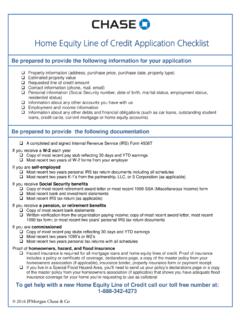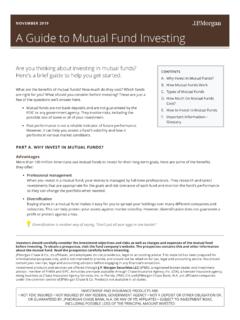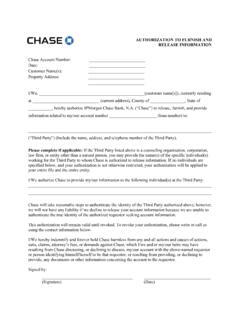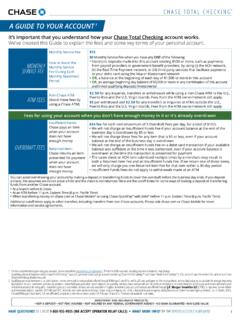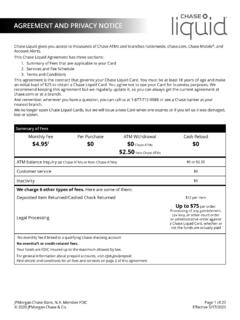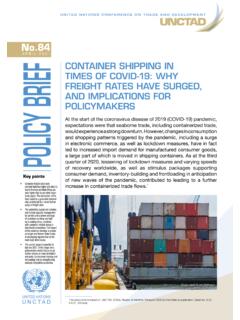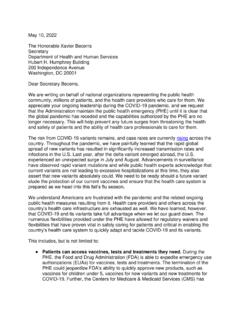Transcription of Chase Identity Theft Protection Kit
1 Chase Identity Theft Protection KIT Your security is important to us. Use this guide to learn more about Identity Theft , protect yourself, and recover if you have already been a victim. To speak to our Customer Protection Group, call 1-888-745-0091; we accept operator relay calls.
2 WHAT IS Identity Theft ? Identity Theft happens when a criminal gets your personal information and tries to steal money from your accounts, open new credit cards, apply for loans, rent apartments, and commit other crimes all using your Identity . Identity Theft can damage your credit, leave you with unwanted bills, and require a lot of time and frustration to clean up. REQUIREMENTS FOR REQUESTING CREDIT CARD DOCUMENTATION We realize you may be a victim of Credit Card Identity Theft and would like details from a Credit Card application or account business records. Before we can send you specific details from any application or business record, we re required by the FACT Act of 2003 and our own Identity Protection policies to obtain the following information from you: A legible copy of a government-issued ID. We can accept a state-issued driver's license, a Military ID, a state ID card, or a passport. A signed and completed Identity Theft Report or Identity Theft Fraud and Forgery Declaration form.
3 For your convenience, you can: Complete the Identity Theft Report online at the website of the Federal Trade Commission (FTC) at Call 1-877-IDTHEFT (1-877-438-4338) to request the FTC Identity Theft Report. Obtain an Identity Theft Fraud and Forgery Declaration form from your Chase branch or from any financial institution. A written request for a copy of the application that includes a summary of all relevant information about the Identity Theft . Third-party documentation, if applicable. Examples include approved Power of Attorney (POA), Conservator, Guardian, Trustee or Executor paperwork. All written requests must be sent by First Class mail to: Chase Card Services ATTN: FACT Act Request PO Box 15941 Wilmington, DE 19885-9918
4 HOW Identity Theft HAPPENS Today, every internet-ready device and website you use could be a risk, especially when you set up or use accounts that require personal information. Through Electronic Devices and the Internet Phishing (pronounced fishing ) You get an email that looks reputable but asks you to call a fraudulent number, respond to the email, or go to a website and enter personal information. Remember, no legitimate representative of JPMorgan Chase will ever ask you for your PIN or password by email. We will request that information only by phone. Spoofing Bogus websites that look legitimate and ask you to provide personal information. Pharming This can happen when you enter a legitimate website, but your browser is redirected to a bogus location that resembles it to collect your personal information.
5 Hacking There are many techniques thieves use to install malicious programs on your devices. The programs capture your keystrokes and network traffic to steal personal information, including user IDs and passwords. Stealing If they get your laptop, smartphone, or another device, thieves can use any unsecured data to discover passwords and access accounts. Skimming Obtaining credit and debit card numbers using a special device on ATMs or when processing a purchase. Through Your Mail and Personal Documents Finding personal information in your home. Stealing wallets and purses with your identification and bank cards. Taking your mail, including bank and credit card statements, pre-approved credit offers, telephone calling cards and tax information. Completing a change of address form to divert your mail to another location. Rummaging through trash for personal data, also known as dumpster diving. Obtaining your credit report by posing as someone who may have a legitimate need for and a legal right to the information.
6 HOW THIEVES USE YOUR PERSONAL INFORMATION They can call your bank and change your mailing address Thieves can pretend to be you and run up charges on your account. You may not know there s a problem because statements are sent to the new address. They can open new credit cards and bank accounts in your name All they might need is your name, birthdate, and Social Security number (SSN). When they use the credit card and don t pay the bills, the delinquent account is reported on your credit report. They might also sign up for a phone or wireless service, forge counterfeit checks or debit cards, and buy cars by taking out auto loans in your name. DEALING WITH Identity Theft If you are a victim of Identity Theft , here s how you can recover. For checklists and sample letters to guide you through the recovery process, go to 1. Notify all your banks and financial companies as soon as you realize your Identity has been stolen or an account is at risk. If you bank with us, call our Customer Protection Group at 1-888-745-0091.
7 We ll work with you to help correct any unauthorized transactions in your Chase accounts, fix any incorrect information we ve sent to the credit reporting agencies and help protect you from any future Identity Theft or account fraud.
8 2. Ask the credit reporting agencies to place a fraud alert or credit freeze in your credit file. These agencies maintain the reports that track the credit accounts opened in your name. A credit freeze, also known as a security freeze, stops creditors from accessing your credit report. This makes it harder for Identity thieves to open accounts in your name. That s because most creditors have to see your credit report to approve a new account. 3. Review your credit reports carefully. You re entitled to one free credit report every year from each of the three major credit reporting agencies: Equifax, Experian, and TransUnion. Get more information and request yours today at Look for all fraudulent accounts and unauthorized changes. Check the inquiry section for fraudulent applications or accounts. If you see any, ask the agency to remove or mask the inquiry. A masked inquiry will only be visible to you. 4. File a report with local police, including the community where the Identity Theft took place.
9 You can give a copy to creditors as evidence of the fraud If the police cannot file a Theft report, ask them to file a miscellaneous incident report. 5. Report any issues with your mail and confirm your address. If you receive statements for accounts you didn t open, contact the creditor. If you don t receive statements for your usual accounts, contact the bank or other company. If you don t receive regular mail, contact your local post office. 6. Close accounts that were opened, changed, or charged fraudulently. Review all your accounts, including credit cards, bank accounts, and utilities. If you see suspicious activity, contact the creditor, bank or utility company. If you open new accounts after that, use new PINs and passwords. If checks were stolen or misused, tell the check verification companies. TeleCheck: 1-800-710-9898 Certegy: 1-800-437-5120 If someone set up a new phone or wireless service in your name, ask the service provider to cancel the account.
10 If they won t, contact the State Public Utilities Commission for local service providers or the Federal Communications Commission at For long distance service providers, call 1-888-CALL-FCC (1-888-225-5322). If someone used your SSN to apply for a job, call the Social Security Fraud Hotline at 1-800-269-0271. To confirm the accuracy of the earnings reported on your Social Security statement, call the Social Security Administration at 1-800-772-1213. If someone used your name to get a driver s license or ID card, or if your driver s license has been lost or stolen, contact your local Department of Motor Vehicles. COMPUTER AND INTERNET FRAUD If the fraud happened through your computer, here are some steps you can take.

